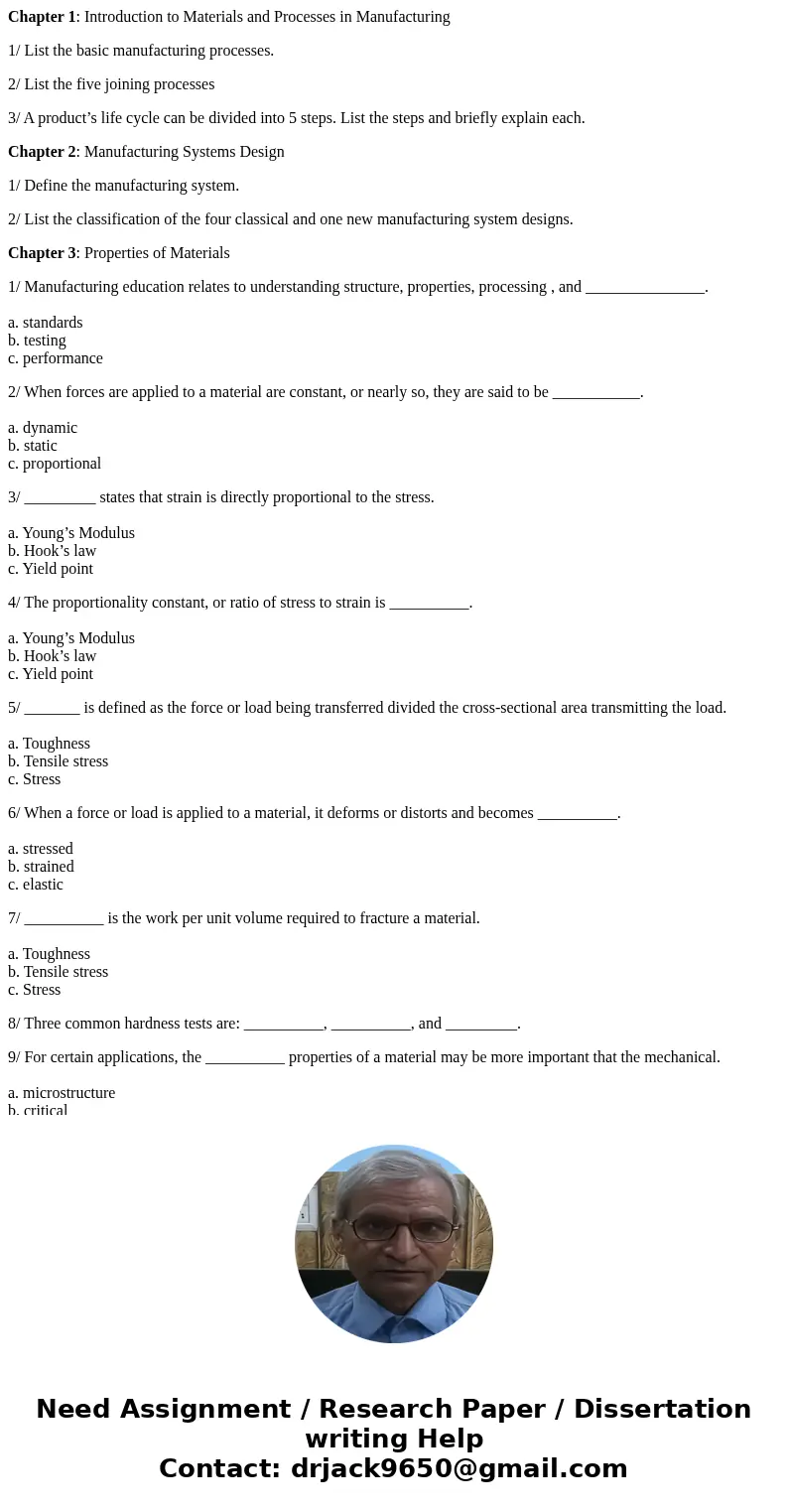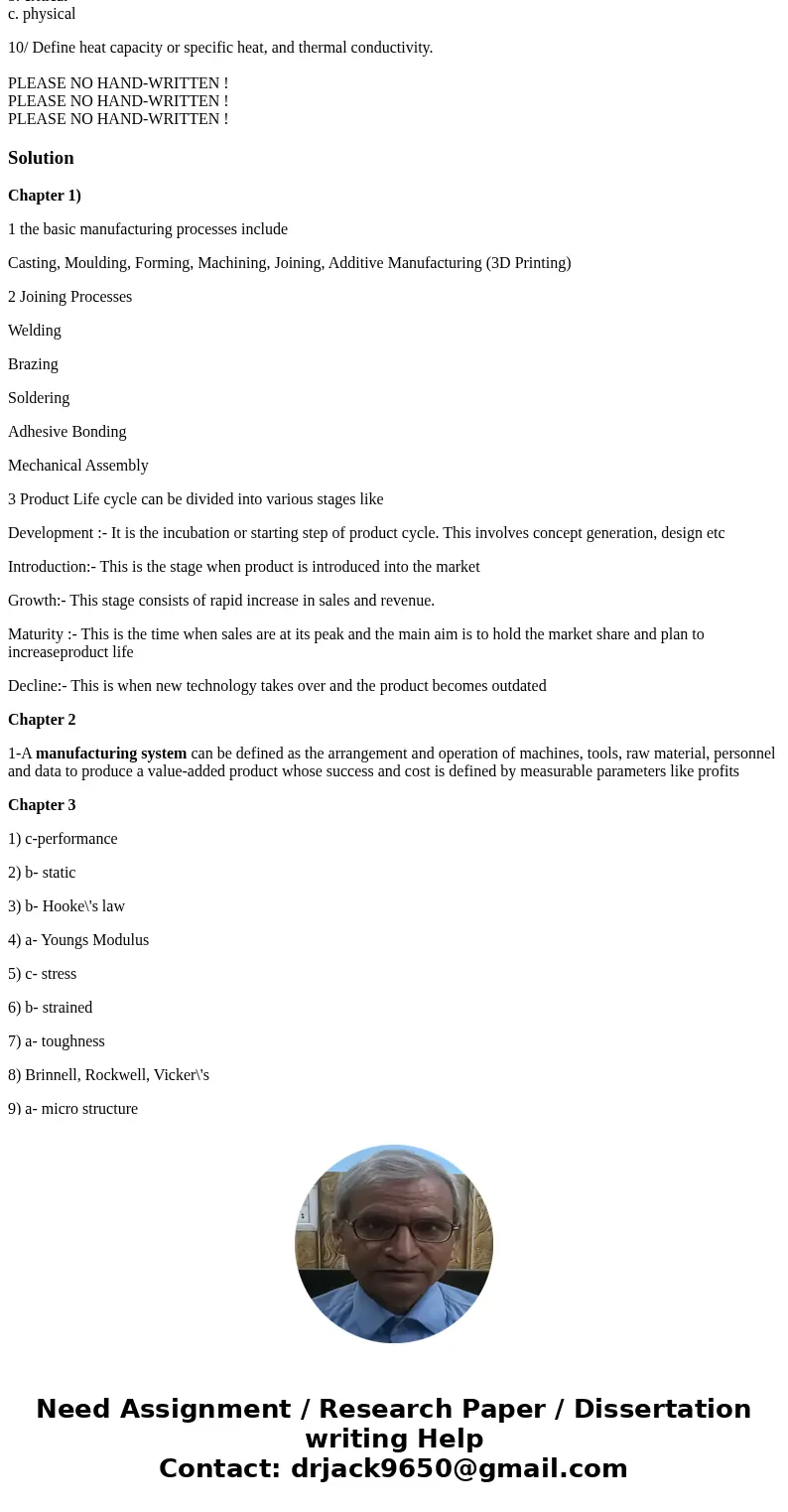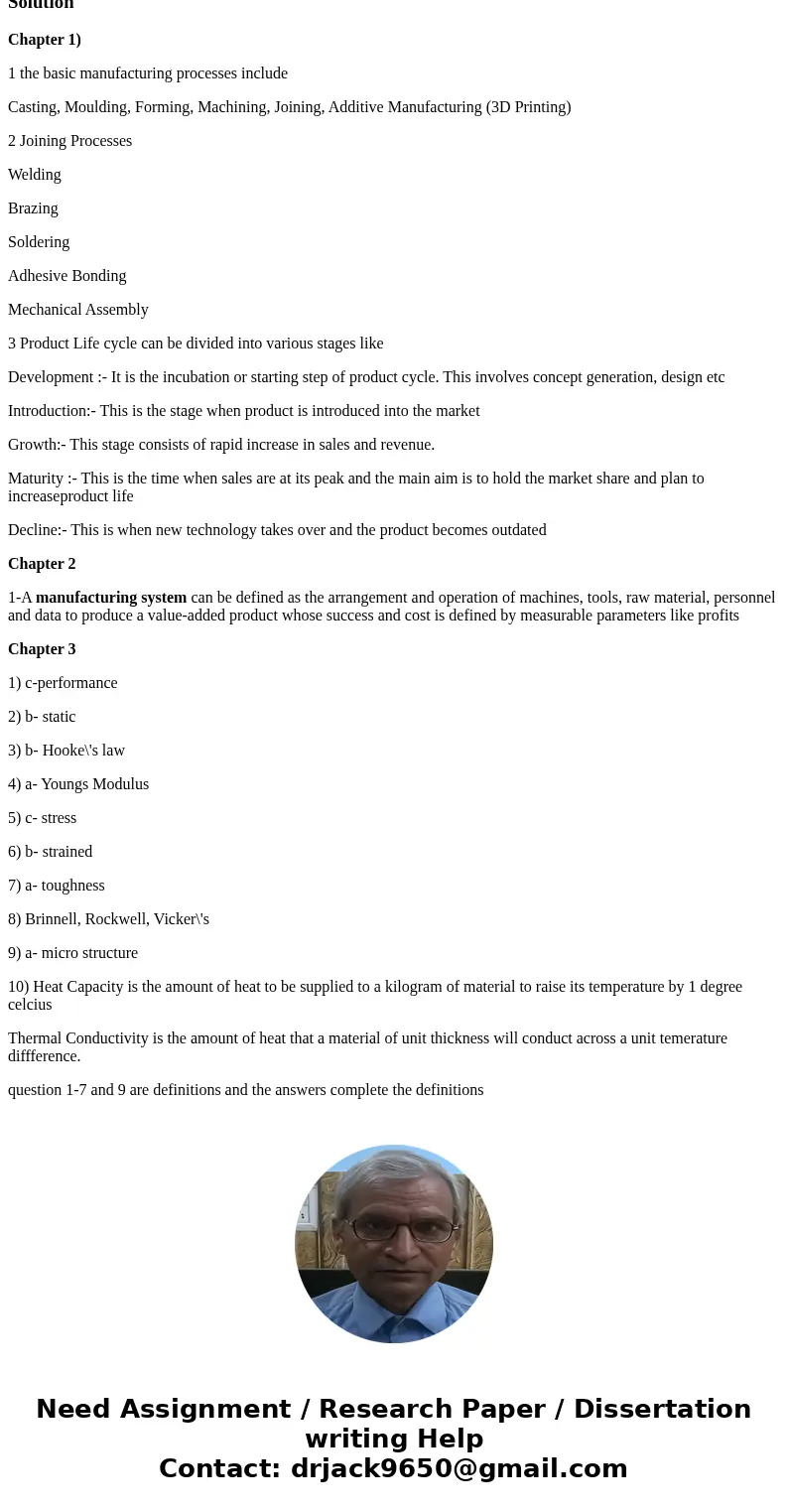Chapter 1 Introduction to Materials and Processes in Manufac
Chapter 1: Introduction to Materials and Processes in Manufacturing
1/ List the basic manufacturing processes.
2/ List the five joining processes
3/ A product’s life cycle can be divided into 5 steps. List the steps and briefly explain each.
Chapter 2: Manufacturing Systems Design
1/ Define the manufacturing system.
2/ List the classification of the four classical and one new manufacturing system designs.
Chapter 3: Properties of Materials
1/ Manufacturing education relates to understanding structure, properties, processing , and _______________.
a. standards
b. testing
c. performance
2/ When forces are applied to a material are constant, or nearly so, they are said to be ___________.
a. dynamic
b. static
c. proportional
3/ _________ states that strain is directly proportional to the stress.
a. Young’s Modulus
b. Hook’s law
c. Yield point
4/ The proportionality constant, or ratio of stress to strain is __________.
a. Young’s Modulus
b. Hook’s law
c. Yield point
5/ _______ is defined as the force or load being transferred divided the cross-sectional area transmitting the load.
a. Toughness
b. Tensile stress
c. Stress
6/ When a force or load is applied to a material, it deforms or distorts and becomes __________.
a. stressed
b. strained
c. elastic
7/ __________ is the work per unit volume required to fracture a material.
a. Toughness
b. Tensile stress
c. Stress
8/ Three common hardness tests are: __________, __________, and _________.
9/ For certain applications, the __________ properties of a material may be more important that the mechanical.
a. microstructure
b. critical
c. physical
10/ Define heat capacity or specific heat, and thermal conductivity.
PLEASE NO HAND-WRITTEN !
PLEASE NO HAND-WRITTEN !
PLEASE NO HAND-WRITTEN !
Solution
Chapter 1)
1 the basic manufacturing processes include
Casting, Moulding, Forming, Machining, Joining, Additive Manufacturing (3D Printing)
2 Joining Processes
Welding
Brazing
Soldering
Adhesive Bonding
Mechanical Assembly
3 Product Life cycle can be divided into various stages like
Development :- It is the incubation or starting step of product cycle. This involves concept generation, design etc
Introduction:- This is the stage when product is introduced into the market
Growth:- This stage consists of rapid increase in sales and revenue.
Maturity :- This is the time when sales are at its peak and the main aim is to hold the market share and plan to increaseproduct life
Decline:- This is when new technology takes over and the product becomes outdated
Chapter 2
1-A manufacturing system can be defined as the arrangement and operation of machines, tools, raw material, personnel and data to produce a value-added product whose success and cost is defined by measurable parameters like profits
Chapter 3
1) c-performance
2) b- static
3) b- Hooke\'s law
4) a- Youngs Modulus
5) c- stress
6) b- strained
7) a- toughness
8) Brinnell, Rockwell, Vicker\'s
9) a- micro structure
10) Heat Capacity is the amount of heat to be supplied to a kilogram of material to raise its temperature by 1 degree celcius
Thermal Conductivity is the amount of heat that a material of unit thickness will conduct across a unit temerature diffference.
question 1-7 and 9 are definitions and the answers complete the definitions



 Homework Sourse
Homework Sourse